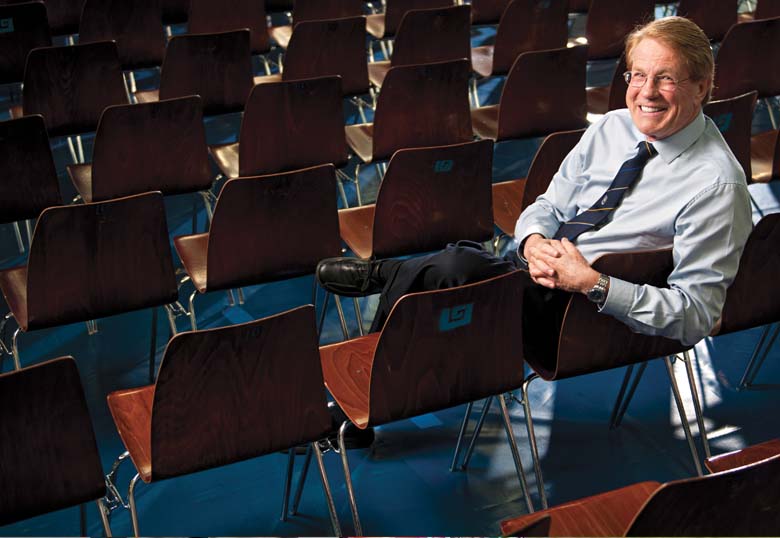This degree is rich in research, but rich as well in professional practice, because we’re carrying on the integration between theory and practice we have always emphasized throughout both our undergraduate and master’s programs.
“I was born in Saskatchewan at the age of 24,” Dr. Richard Butt likes to say.

That’s when he left England to teach in a small prairie town. He drove truck during harvest for several families so their high school students could return to school on time in the Fall.
“It gave me an understanding of rural life, Canada, and how important community is,” he says.
In reality, Butt’s childhood experiences in the British school system, with learning centres, field trips, and expressive arts, had already shaped his belief in hands-on, equal opportunity education and the learning community.
As a young man he worked as a junior researcher alongside others of diverse educational backgrounds.
“We all contributed, regardless of our qualification levels. Everyone was considered equal,” he says. “It was a democratic culture that I valued very much. It’s what shapes me in my teaching, graduate studies work, and the PhD program we are working on implementing. At its core the PhD program is a community of faculty members and doctoral candidates learning and researching collaboratively.”
Butt became an educator to give back to the profession that had given him so much.
“In 1983 I was hired by the University of Lethbridge Faculty of Education to assist with implementing the master’s program,” he says.
The first year, 1984, there were only 12-15 students. Since then the program has grown to approximately 200 students. As Assistant Dean of Graduate Studies and Research in Education (2008–2011), followed by Dr. Kerry Bernes (2011–2014), Butt introduced a number of unique study foci to supplement the existing MEd offerings. With highly focused content, all of these initiatives grew from the expertise and research passions of faculty members working together to build graduate options around the needs of children, teachers and schools.
The proven success of graduate studies led naturally to plans for a doctoral program.
“There’s a demand for PhDs in education,” says Butt, “particularly the type we hope to offer. Our faculty has the knowledge. We have innovative, unique researchers ready to take on graduate students. Almost 50 per cent of the faculty have already been on PhD committees or been external PhD examiners for other universities.”
“Our PhD program has been approved by the Campus Alberta Quality Council and Alberta’s Minister of Advanced Education and Technology,” says Butt.
It offers three concentrations: Formal and Distributive Leadership; Learning, Teaching and Curriculum; and Counselling Psychology.
“There’s a big movement for research evidence-based change in education,” he says, noting that teachers, administrators, and school district personnel completing the doctorate will enhance research capacity and culture in education.
“Our Faculty has been doing a wonderful job of graduate education for 30 years,” says Butt. “There’s a ripe readiness for this PhD. It’s harvest time, so to speak.”
